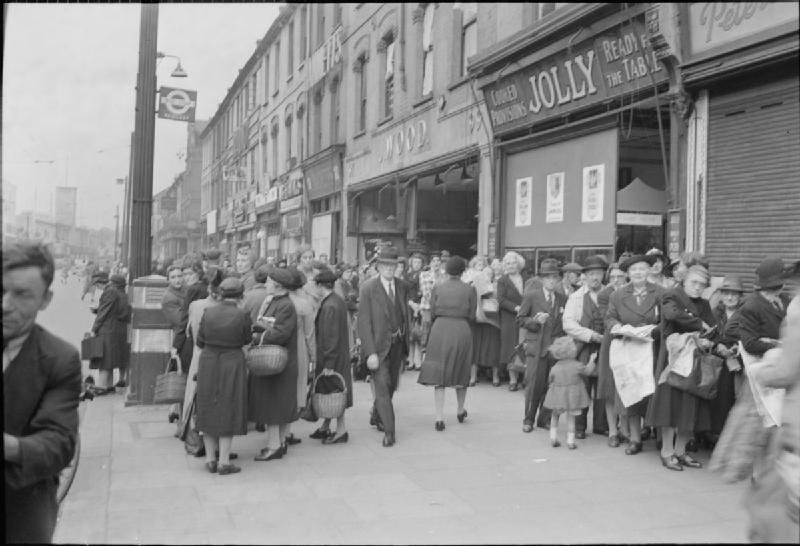How To Respect Customs Traditions Languages When Visiting London.
Customs & Traditions:
How To Respect Customs Traditions Languages when visiting London, demonstrating respect for local customs and traditions is paramount for a smooth and enriching experience, fostering positive interactions with residents and a deeper appreciation for the city’s cultural fabric. British customs and traditions serve as the foundational framework that governs social interactions, shaping everything from the orderly practice of queuing to the nuances of polite greetings and farewells. These often unspoken rules, deeply rooted in the nation’s rich and complex history, permeate daily life, influencing behavior in both formal and informal settings and reflecting the nation’s ingrained and long-standing sense of civility, consideration, and social harmony
Understanding and adhering to these customs, which have evolved over centuries, is not merely about following a set of guidelines; it’s about demonstrating cultural sensitivity and a genuine interest in engaging with British society in a respectful and appropriate manner. By observing these traditions, visitors can navigate social situations with greater confidence, avoid unintentional offense, and cultivate meaningful connections with the people they encounter during their time in London, ultimately contributing to a more rewarding and memorable visit.
How To Respect Customs Traditions Languages
Politeness:
British culture places a particularly high value on the principles of politeness and courtesy, considering them to be fundamental elements of social cohesion and respectful interaction. It is therefore strongly recommended that tourists visiting the United Kingdom make a conscious effort to greet local residents and engage in everyday interactions using the customary phrases of “please,” “thank you,” and “excuse me.”
The consistent and appropriate use of these seemingly simple expressions is widely perceived as a demonstration of respect, consideration, and a genuine willingness to acknowledge the presence, needs, and feelings of others. These linguistic gestures contribute significantly to fostering a positive and harmonious atmosphere, facilitating smoother communication, and helping visitors to navigate social situations with greater ease and confidence, while also leaving a favorable impression.
Queuing:
Queuing, or the practice of waiting in line, is a deeply ingrained and ubiquitous social custom in London. Visitors should be prepared to wait their turn with patience and good grace in virtually any situation where services are provided or access is regulated. This expectation of orderly conduct applies to a wide array of scenarios, whether one is waiting at a bus stop to board public transportation, lining up to enter a popular tourist attraction, or standing in line to make a purchase at a shop or retail establishment.
How To Respect Customs, Traditions Languages
Cultural Sensitivity:
London is a multicultural city, so tourists should be respectful of different cultures, religions, and beliefs. Avoid making assumptions or engaging in behavior that may be considered offensive.
Public Behaviour:
Tourists should be mindful of their behaviour in public spaces. Loud talking, disruptive behaviour, or littering may be considered disrespectful.
Punctuality:
Being on time is important in British culture. Tourists should arrive promptly for appointments, tours, or reservations.
Respecting Personal Space:
British people value their personal space. Tourists should avoid standing too close to others in queues or on public transport.
Greetings:
When meeting someone for the first time, a handshake is a common greeting. Addressing people by their title (Mr., Mrs., Miss) followed by their last name is polite until invited to use their first name.
Dress Code:
London has a diverse range of dress codes depending on the occasion. Tourists should dress appropriately for the venue they are visiting, whether it’s a museum, theater, or restaurant.
How To Respect Customs Traditions Languages When Visiting London.
Summary: Customs & Traditions:
For More Detailed Information on this Complex Subject Visit:- English Culture
To fully enjoy London, understand its customs. Politeness, like queuing and saying “please,” is essential. Respecting unspoken rules, such as space on transport and quiet conversations, prevents offense. Knowing cultural nuances, like tipping and dress codes, demonstrates consideration. This respect fosters positive interactions and a welcoming atmosphere for all, benefiting both current and future visitors.
How To Respect Customs Traditions Languages
Languages & Communication:
The question of what constitutes the spoken word in London, and indeed across the United Kingdom, reveals a fascinating and complex linguistic landscape. Language and communication in the UK are not merely functional tools, but are deeply intertwined with the nation’s rich cultural heritage, historical development, and evolving social fabric. English is undeniably the predominant language, serving as the primary medium for everyday interactions, governance, education, and commerce throughout the country.
What Is The Spoken Word in London?
The English language as it exists in the UK is far from monolithic. It is characterized by a remarkable diversity of regional accents and dialects, each with its own unique phonological features, vocabulary, and grammatical nuances. While Standard British English (SBE) is often considered the formal standard, particularly in official contexts and broadcasting, it represents only one facet of the linguistic reality.
Regional dialects, such as the distinct varieties spoken in Scotland, Wales, and Northern Ireland, not only add a vibrant layer of diversity but also reflect the unique historical and cultural identities of these constituent parts of the UK. These dialects, with their own rich histories and literary traditions, contribute significantly to the overall tapestry of communication within the nation, adding distinct and colorful flavors to the way people express themselves and interact with one another. The interplay between SBE and these regional variations shapes the dynamic and ever-evolving nature of spoken English in the UK.
How To Respect Customs Traditions Languages
Minority Languages:
The United Kingdom is also home to a multitude of minority languages, a vibrant reflection of its increasingly multicultural and diverse society. These languages, which contribute significantly to the nation’s rich linguistic heritage, include indigenous Celtic languages such as Welsh, Scottish Gaelic, and Irish, each with its own unique history and cultural significance.
Furthermore, the UK is enriched by a wide array of immigrant languages spoken by various ethnic communities that have settled in the country, bringing with them their own distinct linguistic traditions. Despite the undeniable dominance of English as the primary language of communication, there are ongoing efforts to preserve, revitalize, and promote these minority languages, recognizing their importance in maintaining cultural identity and contributing to the overall linguistic diversity and richness of the United Kingdom
The Smartphone Solution:
For overseas visitors navigating London, the Google Translate App proves an indispensable and remarkably flexible tool. Its functionality extends far beyond simple typed text translation. The camera feature instantly deciphers street signs, menus, and transport information, overlaying English translations onto the original text in real-time. This is invaluable for understanding the Tube map or a restaurant’s specials board.
Furthermore, the app’s conversation mode allows for smooth, two-way verbal communication, breaking down language barriers with shopkeepers or taxi drivers. The “Tap to Translate” feature seamlessly works within other apps, letting you copy text from a website or social media post and get an immediate translation without ever leaving the screen.
Perhaps its greatest flexibility for a traveller is the ability to download entire language packs for offline use, ensuring help is always at hand even without a data connection. From deciphering a historic plaque to ordering a coffee, the app’s multifaceted approach makes exploring London’s vibrant diversity a far less daunting and much more immersive experience.
How To Respect Customs Traditions Languages
Communications:
Communication styles in the UK are often characterized by a prevailing sense of politeness, a degree of indirectness in expression, and a subtle yet pervasive use of humor, including sarcasm, which can sometimes be nuanced and require careful interpretation
British etiquette places a strong emphasis on good manners, a certain level of formality in particular social and professional contexts, and a marked respect for individual personal space. Non-verbal cues, encompassing body language and gestures, also play a significant role in the communication process, frequently serving to complement or even subtly modify the meaning of spoken words.
How To Respect Customs Traditions Languages
Business & Commerce:
In professional settings, business communication follows formal protocols, with an emphasis on courtesy and professionalism. Social communication revolves around social rituals such as tea time and pub culture, providing opportunities for informal interactions and bonding.
Digital World:
Digital communication has become increasingly prominent, with the widespread use of social media, messaging apps, and email. While these platforms offer new avenues for communication, they also present challenges such as maintaining etiquette and navigating digital language trends and slang.
Education:
Language education and literacy are prioritized in the UK, with a robust education system emphasizing language skills from an early age. Efforts to promote literacy and language learning ensure that individuals have the tools to communicate effectively in diverse contexts.
How To Respect Customs Traditions Languages When Visiting London.
Summary: Languages & Communications:
GOV.UK pages are translated into a multitude of languages. The Government Digital Service (GDS) allows for the translation of most published documents into one of 63 different languages to enhance accessibility for all users, though specific content like fatality notices and statistical data sets cannot be translated.
Overall, language and communication in the UK reflect a dynamic interplay of tradition and modernity, diversity and unity, shaping interactions within the country and its global engagement.
Other Posts Related to This Article:-
- What Is The Tipping Custom In London & Do I Need Travel insurance?
- Best Time To Visit London and What To Pack?
- Where can I Worship My Faith in London?









